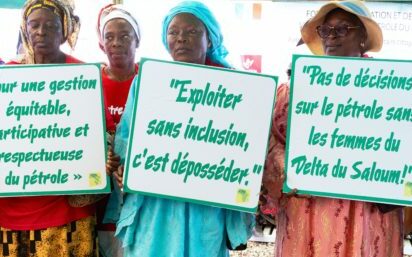
Sangomar Oil Exploitation Information Forum: Wetlands International Africa Calls for Conservation of Natural Resources in Saloum
Information Forum on Sangomar Oil Development: Wetlands International Africa Calls for the Conservation of Natural Resources in the Saloum Delta
Wetlands International Africa West Coasts and Gulf of Guinea (WIACO) participated in the information and awareness forum on the socioeconomic and environmental implications of this development in the Saloum Delta. This event took place in Niodior on Friday, April 11, 2025, and was attended by institutional, community, and environmental stakeholders.
During this meeting, the Executive Director of Wetlands International Africa, Mr. Ibrahima Thiam, delivered a message focusing on the urgent need to work towards sustainable economic development through the conservation of natural resources, particularly mangrove ecosystems, which play a central ecological, economic, and cultural role in this area.

Concrete Actions for Sustainable Results
The Executive Director highlighted several concrete initiatives implemented by the organization, as part of the Community Resilience Project, in close collaboration with local communities, including:
In Protected Areas (MPAs and Reserves), mangrove reforestation efforts have helped restore 56.01 hectares of mangroves, thus strengthening their resilience to climate change and human pressures.
In Niodior, the development of modern beekeeping has not only diversified people’s sources of income, through training on the Nionminka Economic Interest Group (GIE Nionminka), but also raised awareness about the preservation of mangrove forests, the natural habitats of bees.
The Savings and Credit Groups for Mangrove Conservation (GECCOM), established using an inclusive finance approach, have empowered women and young people while actively engaging them in mangrove restoration and conservation efforts.
Finally, in Mbissel, in the rice-growing valley, a salt-land reclamation program was conducted on 25 hectares to improve agricultural production and secure food sovereignty for local communities. The number of beneficiaries in the valley is over 100 rice farmers, 80% of whom are women.
Wetlands International Africa thus reaffirms its commitment to working for the conservation of wetlands and coastal ecosystems in the Saloum Delta and throughout West Africa.

